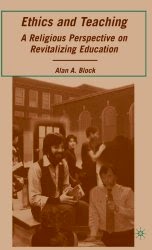Rabbi Ben Ezra
I’ve been thinking about Rabbi Ben Ezra, the speaker in Browning’s poem of that name and from whom today I can draw comfort and strength. Perhaps it is the season of the Jewish High Holidays that provokes this desire to return to the Rabbi. He says, “Grow old along with me/The best is yet to be/The last of life for which the first is made.” I have wondered to whom he speaks in this invitation, I am always interested in the narrator’s audience, but today I think the Rabbi speaks to me as I age. When first I read this poem, I was an English major at Roanoke College and too young to understand the implications of the rabbi’s bidding. Studying Browning’s poem then was a satisfying and wholly academic enterprise. When I arrived on campus in Fall, 1965 the class of 1915 was gathered there for their fifty-year reunion. I marveled at those gray-haired folk as they wandered the campus; I thought of them as very, very old, ancient even, though from my perspective now I understand that they were really at that moment only in their late sixties or early seventies as am I now. I was then amazed that so many people still managed to remain alive and I couldn’t imagine that I would ever see my fiftieth reunion. Ah, I was so much older then. I’m seventy-four years of age now.
Browning’s lines then sounded lovely enough to remember, and I have stored them in memory for this past fifty and odd years. And the words arose recently in my seventy-four-year-old mind and in that moment they possessed a different resonance than first they did on the campus of Roanoke College. I returned to the poem entire. Ben Ezra does not so much celebrate old age, though certainly for him it is a stage of life devoutly to be wished. He does, however, appreciate having arrived there: “Therefore, I summon age/To grant youth’s heritage/ Life’s struggle having so far reached its term.” Age is an inheritance awarded to youth, a position devoutly to be wished. As for me, I do love my life and would not want to leave it. As difficult as it has been at times and even now yet continues to be, I look forward to awakening each morning to realize all that is about me and to consider what lies on the schedule today. As the Weavers sing, “Though nations are warring and business is vexed/ I’ll still stick around to see what happens next.” I accept Ben Ezra’s belief that age may be a time for reckoning and acceptance. I have arrived here to this moment and I am content. I do not cling to regret for some refuge.
Like me, Rabbi Ben Ezra honors doubt. I think perhaps that what old age knows and enjoys is the certainty of doubt and the awareness that the ultimate paradox of life consists in the fact that what is important in life is not to measure the successes but its failures. The Rabbi states, that “what I aspired to be,/And was not comforts me.” It is not success that the Rabbi values, but the failures in his youth that his effort achieved. To have failed is to have tried. Now, in his old age he can rest from the effort. To the ghost Hamlet says, “Rest, rest, perturbed spirit,” but then Hamlet asserts that “The time is out of joint: O cursed spite/That ever I was born to set it right.” Youth is the time for action. Aging may have been now extended, but it is comforting to know that at some point it will come a time to rest for just a bit. I have recently grown comfortable with an intellectual laziness that refuses constant study: my friend says, “Isn’t it wonderful!” I turn very often to detective novels and I have left the classrooms. There is some comfort in leaving the torch for the next generation to assume, to step back from the struggle, and to acknowledge there are in this world differences of opinion but somewhere a truth. The Rabbi asserts, “Let age speak the truth and give us peace at last!” To my daughters I can only offer what I have learned and what I am, “A man, for aye removed/From the developed brute—a god, though in the germ.” I agree, and my death will finally complete that consent.
I appreciate the thought of Browning’s Rabbi Ben Ezra who suggests that with aging comes the wisdom that youth, busy as it must be with experience, cannot achieve. For Rabbi Ben Ezra it would seem that old age is a stage to which I might arrive, the way my yoga teachers advise that to begin practice I might just lie on my back or come to a comfortable seated position and just “arrive.” Ben Ezra suggests that though thought will validate and justify the days past, thought is not a backwards longing at all nor is it some return to a past splendor. The present reflects on the past, proofs it and open the way to the future.
Let me discern, compare, pronounce at last,
“This rage was right i’ the main,
That acquiescence vain;
The Future I may face now I have proved the past.”
Rabbi Ben Ezra suggests to me a different perspective on the life cycle than does Wordsworth. For the Rabbi, the last of life was promised by the first of it but did not determine it. Youth may be the time of action and experiment and action, but old age offers the opportunity to rest, to contemplate, to prepare some understanding to his life. Rabbi Ben Ezra says,
Youth ended, I shall try
My gain or loss thereby;
Leave the fire ashes, what survives is gold.
And I shall weigh the same,
Give life its praise or blame.
Young, all lay is dispute; I shall know being old.
I do not imagine that now that I am well beyond youth I can really know, but I can take comfort in the idea that at this time I can accept the occasions of my life and appreciate that what remains is finally valuable. Frost had said that nothing gold can stay, but Rabbi Ben Ezra declares that only the gold survives. Whereas youth in its boldness and uncouthness strives to do, old age is “exempt from strife, should
know . . .” Should know some peace, I think. I settle into my chair before the fire with a glass of wine . . .












